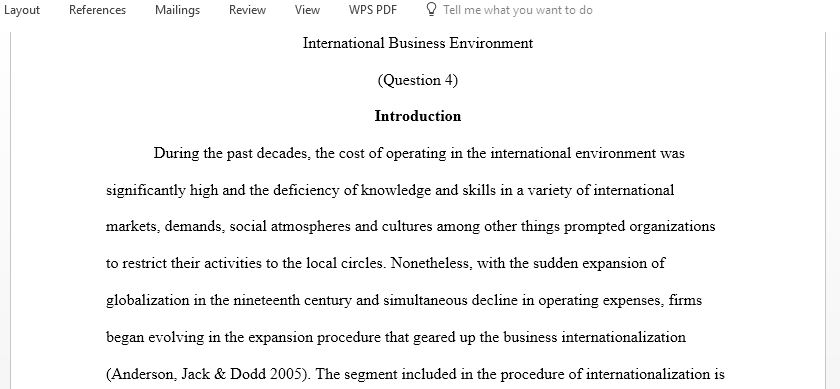Critically compare and contrast the following theories as explanations of the process of business internationalisation
Using case study examples from the current international business, critically compare and contrast the following theories as explanations of the process of business internationalisation
1. Dunning’s Eclectic Paradigm
2. Kruger’s First Mover Advantage Theory
3. Vernon’s Product Lifecycle Theory
This assessment covers the following learning outcomes from the module. Knowledge:
1. Critically review and apply concepts, terminology & theoretical models associated with international business policies and strategies.
2. Demonstrate understanding of the political, socio‐cultural, economic and technological factors that have been found to influence variations in international organisational business structures and leadership and management styles
3. Critically assess the relationship between national and organisational cultures
4. Relate the conceptual theories of ‘internationalisation’, innovation and competitive advantage to different industries and locations
Answer preview for Critically compare and contrast the following theories as explanations of the process of business internationalisation
Access the full answer containing 3200 words by clicking the below purchase button

